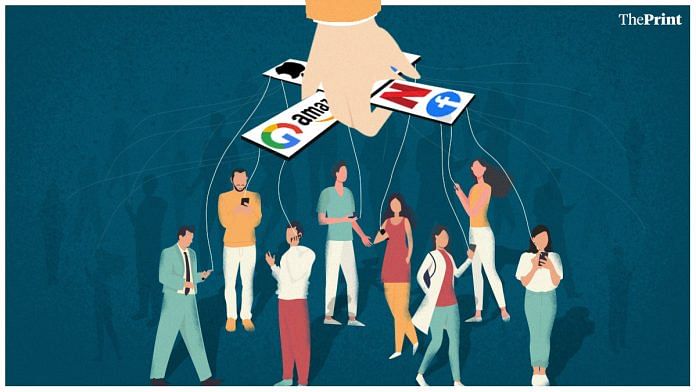If there is one thing other than the pandemic that has marked the epochal year which is drawing to a close, it is a changed attitude to a once almost universally admired set of companies that are loosely clubbed together as tech giants — Facebook, Amazon, Apple, Netflix, and Google, or FAANG. Governments on both sides of the Atlantic seem set on tackling what they see as predatory business practices, tax avoidance, and misuse of data, all of it flowing from excessive corporate power in “winner-take-all” or “platform” businesses like search, online shopping, and digital ads.
These businesses serve or create essential needs in the Internet age, and have done well in the changed pandemic reality (more online shopping, for instance) even as other businesses have suffered. The charge is that this outcome is in part caused by the misuse of market dominance. Investors aren’t complaining about the resulting prosperity. FAANG share prices have rocketed in 2020 by close to 50 per cent, on top of some 75 per cent in the previous three years. Amazon, Apple, and Alphabet (which owns Google) have become trillion-dollar enterprises, and Facebook seems on its way there. The big five now account for over a fifth of the S&P 500 index.
Power is a by-product of such great wealth, and Mark Zuckerberg of Facebook has been described as the most powerful unelected person on Earth, a supra-state personified. He has declared more than once his intention to “protect” the integrity of national elections, which is ironic, given that Facebook has been under pressure to weed out hate speech and fake news. It has been under scrutiny by US legislators investigating secretive political ads, and the subject of reports in the Wall Street Journal for allegedly having got into bed with the BJP’s cohorts in India.
Also read: Google, Amazon and Apple face the nuclear option in Europe
Hitherto quiescent governments are getting their act together. Two months ago, the US justice department launched an investigation into Google’s deals with partnership firms (including Apple, which may not have been colluding) to block the distribution of rival search engines. This week, Texas has filed a lawsuit against Google, alleging a deal with Facebook to rig auctions for internet ad space. Earlier, in June, the European Union (EU) imposed a record $2.7 billion fine on Google for skewing search results to benefit its shopping search service. It has investigated Amazon for unfairly using third-party merchant data. And since the FAANG companies have routed profits through low-tax havens, the EU is also considering a proposal to get more tax revenue from these companies. Separately, the penalty for future misdemeanours may be a percentage of global annual revenue! Meanwhile, Facebook is under attack for squeezing out rival firms offering competing games and services.
It is not clear how much the regulatory moves will succeed, and whether the US will undo Facebook’s acquisition of WhatsApp and Instagram. All the companies deny wrongdoing. Google is appealing the EU’s fine, but has stopped using an Irish tax loophole, while Facebook is fighting a directive against cross-border data transfer. Meanwhile, Amazon is said to be readying to tighten its grip on markets by using a proposed global e-commerce pact for free data flow across borders. Governments like India’s have protested and framed rules to regulate data transfer.
Symptomatic of how these developments have changed perceptions of the FAANG companies is an article this week on the Atlantic magazine’s website under a headline that declared: “Facebook is a doomsday machine”. The article said: “Central to that brokenness (of the social web) is the unprecedented scale … of Facebook. The company’s huge reach is a fundamental part of what it is, but it’s also a grave threat to humanity.”
On their part, the FAANG companies see themselves as offering solutions to problems like climate change by using artificial intelligence. Civil society activists fear that their outreach into new areas of potential dominance constitutes an expanding threat. There is so far limited debate in India, where virtually all the FAANG companies have teamed up in different ways with India’s most powerful businessman. It’s an interesting question: Did the government move on a national data boundary wall drive FAANG to do those multi-billion deals with Jio?
By Special Arrangement with Business Standard.
Also read: Latest antitrust lawsuit could force Google to change its practices




I think it is important for the countries to work with china too on this. Chinese companies like alibaba too are big. And increasingly the party state might try to use those outside China for its own strategic goals. While we dismantle our (non chinese) big tech giants to end their unfair dominance, we also need to ensure that we don’t lose our chance to fight chinese big tech. I could be wrong. I am no expert.